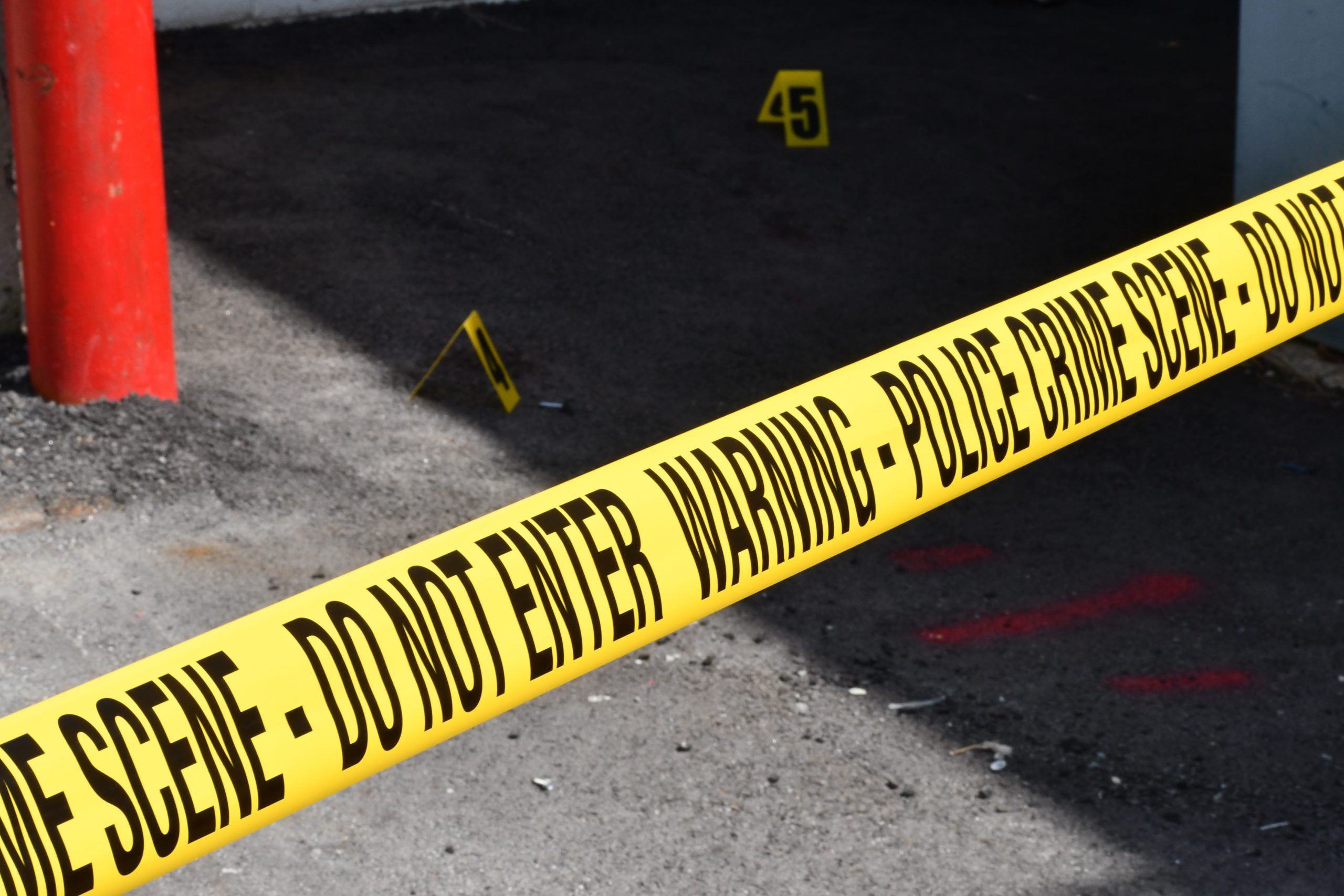In the realm of criminal law, the concept of “justifiable homicide” is both complex and controversial. As a business owner or a leader of a company, it is important to understand the nuances and implications of this legal term in order to protect your interests and those of your organization. At its core, justifiable homicide refers to the act of taking someone’s life in circumstances that are deemed legally acceptable and excusable. This article aims to provide you with a thorough understanding of justifiable homicide, answering key questions and addressing common concerns that may arise in the course of your professional endeavors. By delving into the intricacies of this topic, you will gain valuable insights into when and how justifiable homicide can be applicable in the context of your business, ultimately empowering you to make informed decisions.

Understanding Justifiable Homicide
Justifiable homicide is a complex legal concept that revolves around circumstances where the killing of another person is considered legal and justified. This article aims to provide a comprehensive understanding of justifiable homicide, including its definition, legal justifications, and the various scenarios in which it may arise. Whether you are a business owner or an individual facing criminal charges, it is essential to familiarize yourself with the nuances of this area of law to ensure that you are well-informed and prepared.
Definition of Justifiable Homicide
Justifiable homicide refers to the intentional killing of another person that is deemed legal and justified under the law. It is crucial to understand that justifiable homicide is not synonymous with murder, as it involves specific legal justifications and requirements that must be met for the killing to be considered justified. These legal justifications typically include self-defense, defense of others, and defense of property, each with its own set of elements and conditions.
Legal Justifications for Homicide
Various legal justifications can justify the use of lethal force in certain circumstances. These justifications provide individuals with a legal defense against criminal charges arising from the intentional killing of another person. The most common legal justifications for homicide include self-defense, defense of others, and defense of property. Understanding these justifications is crucial in determining whether a killing falls under the umbrella of justifiable homicide.
Self-Defense as a Justification for Homicide
Self-defense is a widely recognized justification for the use of lethal force when an individual reasonably believes they are in imminent danger of death or serious bodily harm. To successfully claim self-defense in a homicide case, several elements must be present. First, there must be an imminent threat to the defender’s life or safety. Second, the defender’s response must be proportionate to the perceived threat. Lastly, the defender must have a reasonable belief that they are in imminent danger.
Imminent Threat
The concept of an imminent threat is crucial in determining whether self-defense can be justified. An imminent threat refers to a situation in which an individual reasonably believes that they are facing an immediate and serious risk of harm or death. This belief must be based on objective circumstances and the perceived intent of the assailant. The threat must be imminent, meaning that it is happening at that moment or is about to occur.
Proportional Response
Proportionality is an essential element in self-defense claims. A defender’s response to an imminent threat must be proportional to the perceived danger they are facing. In other words, the level of force used must not exceed what is reasonably necessary to repel the threat. The defender should only use as much force as is necessary to prevent harm or escape the situation safely.
Reasonable Belief of Danger
A key requirement for justifying homicide in self-defense cases is a reasonable belief of danger. The defender must have had a genuine and reasonable belief that they were in imminent danger of death or serious bodily harm. This belief must be based on the circumstances known to the defender at the time and should not be influenced by hindsight or speculation.
Defense of Others as a Justification for Homicide
Similar to self-defense, the defense of others can serve as a legal justification for the intentional killing of another person. This justification applies when an individual uses lethal force to protect another person from an imminent threat. The elements required for defense of others are generally the same as those for self-defense, including the presence of an imminent threat, a proportional response, and a reasonable belief of danger.

Elements of Defense of Others
To successfully claim defense of others as a justification for homicide, the following elements must be present:
-
Imminent Threat to Others: The defender must reasonably believe that another person is in immediate danger of death or serious bodily harm.
-
Proportional Response: The defender’s use of lethal force should be proportionate to the perceived threat faced by the third party.
-
Reasonable Belief of Danger: The defender must have a genuine and reasonable belief that the person they are defending is in imminent danger.
Defense of Property as a Justification for Homicide
Defense of property, while a less commonly used justification for homicide, can still be legally recognized in certain circumstances. This justification allows individuals to use lethal force to protect their property from an imminent threat. However, it is essential to note that the use of deadly force in defense of property is subject to strict requirements and limitations.
Elements of Defense of Property
To claim defense of property as a justification for homicide, the following elements must generally be met:
-
Imminent Threat to Property: There must be an immediate and imminent threat to the defender’s property.
-
Proportional Response: The defender’s use of lethal force must be proportionate to the threat posed to the property.
-
Reasonable Belief of Danger: The defender must have a genuine and reasonable belief that using deadly force is necessary to protect their property.
Castle Doctrine and Stand Your Ground Laws
The Castle Doctrine and Stand Your Ground laws are legal principles that further clarify the circumstances in which an individual can use lethal force in self-defense, defense of others, or defense of property.
Differences between Castle Doctrine and Stand Your Ground Laws
The Castle Doctrine is a legal principle that allows individuals to use lethal force within their own homes or other legally occupied spaces without a duty to retreat. This means that individuals have the right to defend themselves, their families, and their property against intruders or assailants without first attempting to escape or retreat.
Stand Your Ground laws, on the other hand, extend this principle beyond one’s home or occupiable space. Under Stand Your Ground laws, individuals have no obligation to retreat and can use lethal force in self-defense or defense of others whenever they reasonably believe it is necessary to prevent death or serious bodily harm.
Applicability of Castle Doctrine and Stand Your Ground Laws
The Castle Doctrine and Stand Your Ground laws vary in applicability between jurisdictions. Some states may have specific statutes that adopt these principles, while others may rely on common law interpretations. It is crucial to consult with a criminal defense attorney familiar with the laws of your jurisdiction to understand how these principles might apply to your case.
Use of Deadly Force by Law Enforcement
While justifiable homicide is often associated with self-defense scenarios involving individuals, it is essential to address the use of deadly force by law enforcement officers. The legal standards governing law enforcement’s use of lethal force differ from those applicable to private citizens.
Legal Standards for Law Enforcement’s Use of Deadly Force
Law enforcement officers are permitted to use deadly force when it is objectively reasonable and necessary to protect themselves or others from an imminent threat of death or serious bodily harm. The legal standard commonly applied is whether a reasonable officer in the same situation would have used similar force given the circumstances. However, the specifics of these standards may vary between jurisdictions, and agency policies may impose additional requirements and restrictions.

Training and Accountability for Law Enforcement
Given the grave consequences associated with the use of deadly force by law enforcement, it is crucial for agencies to provide comprehensive training and ensure accountability. Effective training should include techniques for de-escalation, crisis intervention, and the use of less-lethal force options, among other essential skills. Additionally, accountability measures, such as thorough investigations and disciplinary actions, play a crucial role in maintaining trust and transparency within the criminal justice system.
Justifiable Homicide vs. Murder
It is essential to distinguish justifiable homicide from murder, as the two concepts have significant legal and moral distinctions.
Distinguishing Justifiable Homicide from Murder
While both justifiable homicide and murder involve the intentional killing of another person, the key factor lies in the legal justifications and circumstances surrounding the act. Justifiable homicide is recognized as lawful and justified under specific circumstances, such as self-defense or defense of others, while murder involves the unlawful and intentional killing without any legal justification.
Burden of Proof in Justifiable Homicide Cases
In cases where a person claims justifiable homicide as a defense in a criminal trial, the burden of proof typically rests on the defendant. The defendant must present evidence and persuade the jury that their actions fall within the legal justifications for justifiable homicide. This burden may vary depending on jurisdiction, and it is essential to consult with a criminal defense attorney to navigate the complexities of each specific case.
Consequences and Potential Defenses in Justifiable Homicide Cases
When someone is involved in a justifiable homicide case, it is crucial to understand the potential consequences and available defenses.
Investigation and Prosecution of Justifiable Homicide Cases
After a justifiable homicide occurs, law enforcement authorities will conduct a thorough investigation to determine whether the killing falls within the legal justifications. The decision to pursue charges typically lies with the prosecuting attorney, who will evaluate the evidence and circumstances surrounding the incident. If charges are brought, the defendant’s legal team will prepare a robust defense based on the applicable legal justifications.
Potential Legal Defenses and Strategies
In justifiable homicide cases, several legal defenses and strategies may be employed to protect the defendant’s rights and prove their actions were justified. These defenses may include presenting evidence of an imminent threat, disproving the prosecution’s claims, or demonstrating that the defendant acted with reasonable belief and proportionality. Consulting with a skilled criminal defense attorney is crucial for building an effective defense strategy tailored to the specific circumstances of each case.
Consultation with a Criminal Defense Attorney
Given the complexities and potential consequences surrounding justifiable homicide cases, it is essential to seek legal guidance from a criminal defense attorney.
Importance of Consulting with an Attorney
Consulting with an experienced criminal defense attorney is essential when facing the complexities of justifiable homicide cases. A knowledgeable attorney can guide you through the legal process, explain your rights and options, and help build a strong defense strategy to protect your interests.
Expertise in Justifiable Homicide Defense
Choosing a criminal defense attorney with expertise in justifiable homicide cases is paramount to achieving a favorable outcome. An attorney with relevant experience can effectively navigate the complexities of the law, examine the evidence, and identify the most effective defense strategies tailored to your specific case.
Case Evaluation and Legal Guidance
During an initial consultation with a criminal defense attorney, they will evaluate the details of your case, explain the potential legal options, and provide guidance on the best course of action. This evaluation process is crucial in understanding the strengths and weaknesses of your case and developing a strategy to protect your rights and interests.
Frequently Asked Questions about Justifiable Homicide
To provide further clarity on the topic of justifiable homicide, here are some frequently asked questions and brief answers:
FAQ 1: What constitutes justifiable homicide?
Justifiable homicide refers to the intentional killing of another person that is deemed legal and justified under specific circumstances, such as self-defense, defense of others, or defense of property. The act must meet certain legal requirements and elements to be considered justifiable.
FAQ 2: Can self-defense be used as a defense in a homicide case?
Yes, self-defense can be used as a legal defense in a homicide case if the defendant can demonstrate that they reasonably believed they were in imminent danger of death or serious bodily harm and their response was proportional to the perceived threat.
FAQ 3: How does the Castle Doctrine protect homeowners?
The Castle Doctrine allows homeowners to use lethal force to defend themselves, their families, and their property within their own homes or legally occupied spaces without a duty to retreat. This principle provides legal protection for homeowners facing imminent threats.
FAQ 4: Is it legal for law enforcement officers to use deadly force?
Law enforcement officers may use deadly force when it is objectively reasonable and necessary to protect themselves or others from an imminent threat of death or serious bodily harm. However, the specific legal standards and requirements governing law enforcement’s use of lethal force may vary between jurisdictions.
FAQ 5: What should I do if I believe I was justified in a homicide?
If you believe that your actions constituted justifiable homicide, it is crucial to seek immediate legal representation from a skilled criminal defense attorney. They will evaluate the details of your case, guide you through the legal process, and develop a tailored defense strategy to protect your rights and interests.
Remember, the information provided in this article is for general informational purposes only and should not be considered legal advice. Each justifiable homicide case is unique, and consulting with a criminal defense attorney is essential for obtaining accurate legal guidance based on the specific circumstances of your case.



